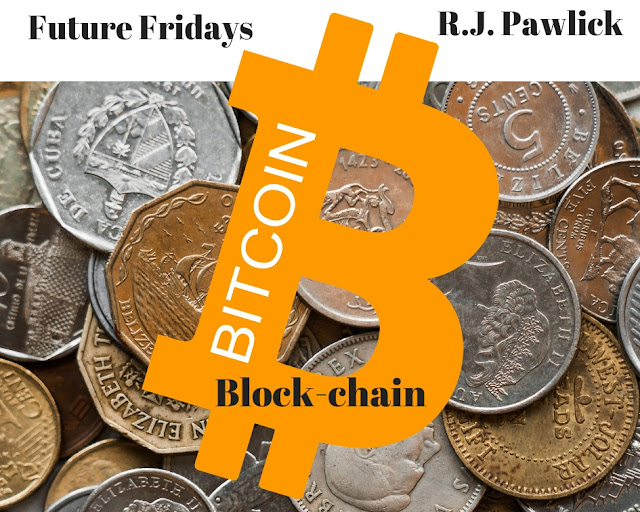Block-chain first came to light when BitCoin(R) began processing online financial transactions. The shiny, new platform ensured system integrity because it immediately updated all ledgers around the world that touched any part of a specific transaction. By its design, hacking and fraud became seemingly impossible to pull off.
As BitCoin’s inevitable competitors have become many, the block-chain environment became a commodity in search of new markets.
Enter the gaming industry. In the article, “How Block-Chain is Changing Computer Gaming”, it appears that block-chain capabilities are expanding the reach and characteristics of specific games, potentially blending many features that make unique games unique might one day morph all games into one massive, generic game. For example, it won’t be long before gamers will be able to share favorite avatars, weapons, skins, and the like with other games they play. Such features and powers might become assets that can be traded, sold, or bid upon — regardless of the platform and original gaming source. Imagine wealth being generated by monetizing all facets of the computer-gaming environment.
Behind the scenes, managing each trade and purchase will be block-chain transaction-processing logic. When a skin from a Fortnite(r) gamer is sold to a Minecraft(R) gamer, as an example, every ledger everywhere would be updated to reflect any impact to affected accounts.
Leap ahead into the not-so-distant future. It’s time to put on our tin-foil conspiracy hats for the rest of this post.
Following the predictable business model, soon, block-chain will be applied to another industry ... then another ... and so on.
Tin-foil hat scotch-taped securely to your forehead? Here we go down the rabbit hole.
Two realities come to mind: the first, information is power; the second, governments need and want information so they can remain in power. Yep, Big Brother is raising its ugly head again as we apply block-chain to a government model.
Online portals exist, particularly in the healthcare industry, to aggregate and disseminate patient information among participating providers, insurance companies, benefits administrators, et al.
Behind the guise of reducing patient and provider fraud and misinformation, governments could implement block-chain systems to gather information about everyone, everywhere from noting an infected paper-cut on a patient’s finger into a patient’s e-record to capturing how a Social-Security payment was disbursed, every bit and byte of data could be captured, consolidated, massaged, and mined by a government entity. Such a person’s records everywhere would be updated instantly — as long as it was all connected via this envisioned, massive database.
My premise is based upon a standard business model and the need for governments to amass and act on information. It’s really not a stretch. Heck, the USA’s Defense Advanced Research Projects Agency (DARPA) probably created the block-chain environment 50 years ago as it developed the internet. It is possible that governments have been spoon-feeding block-chain programming code to internet communities and portal owners.
What’s the way out of this rabbit hole? It’s likely that we’re too late to reverse the trend toward excessive disclosure of personal information. Agencies and companies do exist solely for the purpose of sifting through data in order to forecast trends, uncover unsavory plots, manipulate buying decisions, and to allocate resources. These organizations apply algorithms and artificial intelligence to data-mine — massage the data to an even greater extent to develop an individual’s profile, group affiliations, and connected relationships.
What can a person do in this draconian environment? Read the terms and conditions of each website you are interested in joining (probably too late to affect change within those websites where one is already a member). I was surprised to read how often privacy clauses allow the site’s owner to sell your personal information to whomever they wish.
Certainly, I’ve painted a dark picture, and for that, I am sorry.
Free is rarely free.
I’m guilty of searching out apps and sites that don’t charge fees or subscriptions. Developers, though, must be paid somehow to justify giving away their creations to users. We’re all smugly aware of the purpose of click-through ads, but lurking in the shadows reside the terms & conditions and privacy policies that offer the developer a backdoor income stream — built upon your data.
On that note, have a good day.
~RJ

To add a bit of fuel to the fire; one doesn't have to worry only about Internet data. The GIS which most counties are using offers a wealth of information on each of us. If you Google your name, you'll find sites which (at no cost) provide the list of every home you've ever owned - address, taxes paid by year, lot size, appraised value, purchase price and more. Voting records kept by the county list what your party affiliation is, how you've voted in past elections, your address & voting precinct. If you've ever completely filled out a warrantee card which the company has access to, you'll find your annual income, and all the preferences you listed on the card. Add in the info you mention and you round out a HUGE portfolio on each of us. Big brother has us by the short hairs!!
ReplyDeleteYou’re absolutely correct, and such disclosure is maddening. I’ve contacted many sites to opt-out, but within six months, my info is right back on the web — not sure if laws protect these sites’ ability to re-publish such info after I opt out, but I’ve never been able to disappear from such sites for more than six months. It seems that as new data is added to one’s account, then that justifies resurrecting as much of your data as possible. It’s like Don Quixote chasing windmills to put a stop to it.
Delete